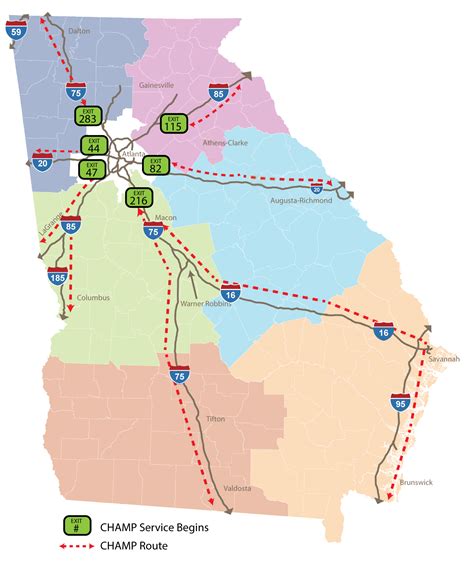Beat the Traffic: The Ultimate Guide to Driving from Macon to Atlanta
Navigating the roads between Macon and Atlanta can feel like a daily battle against congestion, especially during peak hours. But fear not, fellow drivers! This comprehensive guide will equip you with the knowledge and strategies to conquer the commute and reach your destination swiftly and efficiently. We'll explore various routes, traffic patterns, and time-saving tips to ensure your journey is as smooth as possible.
Which Route is Best from Macon to Atlanta?
The most common route is via I-75 North. While it's the most direct, it's also the most prone to traffic congestion, particularly during rush hour (generally 7-9 am and 4-6 pm). The travel time on I-75 can vary wildly depending on the day and time, ranging from under an hour to well over two.
Alternatively, you can consider using secondary routes, but these often add significant travel time. While they might offer less traffic at certain times, they typically involve smaller roads with slower speed limits and more curves. This means a longer drive overall.
Ultimately, the "best" route depends heavily on the time of day and your tolerance for traffic.
What Time is the Best Time to Drive from Macon to Atlanta?
The best time to drive from Macon to Atlanta is generally outside of peak commuting hours. Aim for early mornings (before 7 am) or late evenings (after 7 pm) for a smoother, quicker trip. Weekends typically see less congestion, though this isn't guaranteed.
How Long Does it Take to Drive from Macon to Atlanta?
The drive time from Macon to Atlanta is notoriously unpredictable due to traffic. Under ideal conditions, the trip on I-75 can take as little as an hour and a half. However, during peak hours, expect significant delays that could easily double or triple that time.
What are the Common Traffic Problems on the Macon to Atlanta Route?
I-75 Congestion: The primary culprit is I-75 itself. Construction, accidents, and simply the high volume of commuter traffic can create significant bottlenecks, especially around the I-75/I-85 interchange near Atlanta.
Rush Hour Traffic: As mentioned, rush hour (7-9 am and 4-6 pm) is the worst time to travel this route. Be prepared for stop-and-go traffic, lane closures, and significant delays.
Accidents: Accidents on I-75 can cause major disruptions, leading to lengthy delays and traffic backups. Checking traffic conditions before you leave is crucial.
How Can I Avoid Traffic on My Trip from Macon to Atlanta?
-
Check Traffic Conditions Before You Leave: Use apps like Google Maps, Waze, or Apple Maps to check real-time traffic conditions before you start your drive. These apps provide alternative routes and can often predict delays accurately.
-
Utilize Alternative Routes (with Caution): While secondary roads might seem appealing to avoid I-75, remember that they're often slower. Consider these only if I-75 traffic is exceptionally heavy and you have ample time.
-
Travel During Off-Peak Hours: This is the most effective strategy. Leaving early or late can significantly reduce travel time.
-
Stay Informed: Stay updated on traffic alerts and news reports. Radio traffic reports or apps can provide valuable information about incidents that might affect your route.
-
Be Patient: Traffic is unavoidable sometimes. Plan for delays and build extra time into your schedule. Avoid aggressive driving, which can increase the risk of accidents.
What are Some Alternatives to Driving from Macon to Atlanta?
If you're flexible, consider alternative transportation methods:
-
Bus: Several bus companies offer service between Macon and Atlanta. This can be a more relaxing way to travel, especially if you are not comfortable driving in heavy traffic.
-
Train: While not a direct option, you could explore train travel to a nearby city and then use other transportation methods to complete your journey. This is generally a less convenient option but eliminates traffic concerns entirely.
Conclusion:
Driving from Macon to Atlanta doesn't have to be a stressful experience. By planning ahead, monitoring traffic conditions, and choosing the right time to travel, you can significantly improve your commute and arrive at your destination efficiently. Remember, preparation and flexibility are your best allies in beating the traffic.

